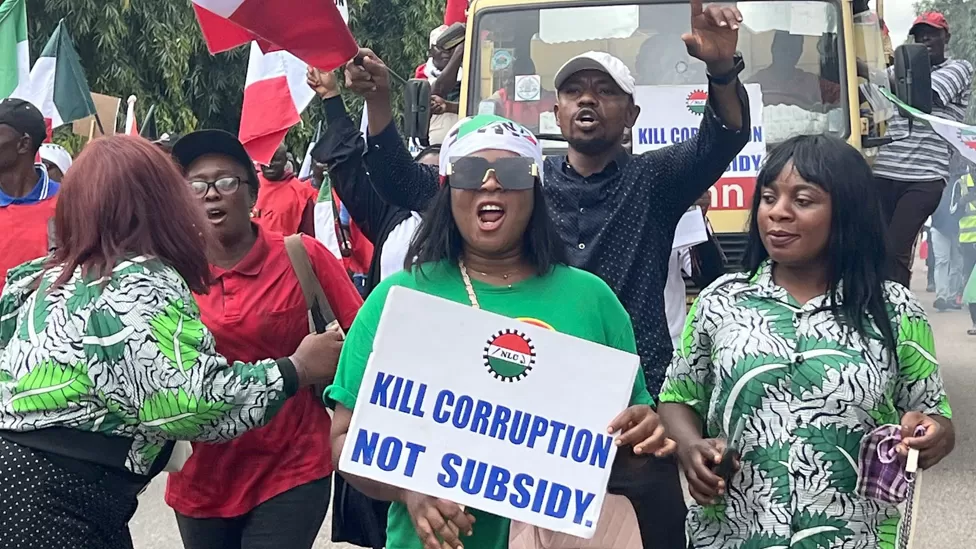President Tinubu increases wages as national strike looms

To deal with the sharp rise in living costs since Mr Tinubu took office in May, unions want the monthly wage raised to $255 (£210).
As a result of the president’s $32 increase, the minimum salary will only rise to $70 per month.
As a result of the recent tripling of fuel prices, he pledged to speed the rollout of cheap gas-powered buses.
In Africa’s largest economy, Mr Tinubu removed a fuel subsidy that had kept petrol prices low for decades.
A historic fall in the naira followed the country’s abandonment of its currency peg in June.
Inflation has skyrocketed due to an increase in import costs, making life difficult for struggling Nigerians. During a televised address to mark the country’s 63rd anniversary of independence, the president outlined measures he said would ease people’s economic hardships.
According to Mr Tinubu, “It is no joy to see the people of this nation bear burdens that should have been shed years ago.”
In order to reach the good side of our future, we must endure today’s difficulties.”
Despite the pain of reform, he said the government could now invest the billions saved from the fuel subsidy into projects like compressed natural gas buses.
It is now our responsibility to ensure that the abundance and fruits of the nation are fairly shared among all, not hoarded by a select few,” he said.
“A Nigeria where hunger, poverty, and hardship are relegated to the past.”
